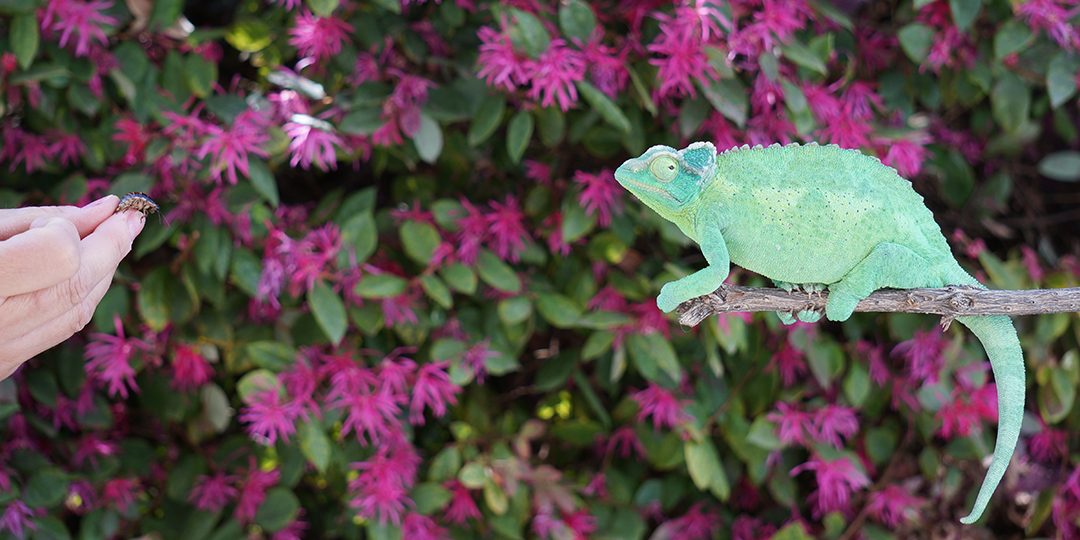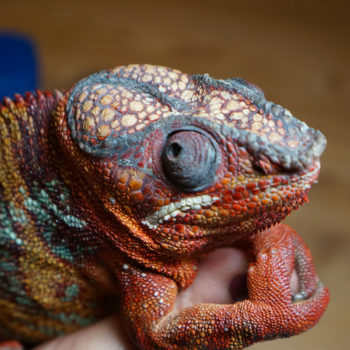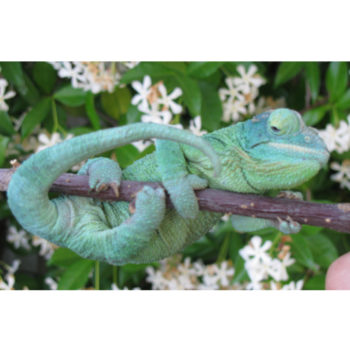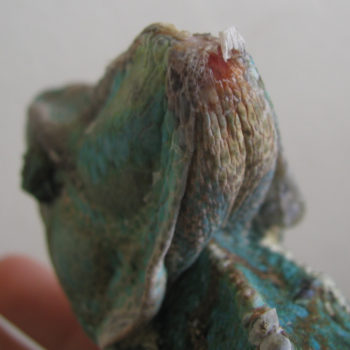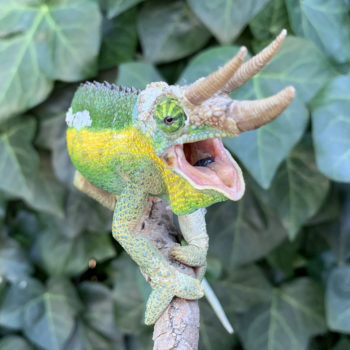Chameleon refuses to eat
Behavior
Chameleon will not eat
Analysis
Meaning: Chameleons can easily go for a week without eating so missing a meal or two is not an issue. But you will want to get to the bottom of the hunger strike.
Possibilities:
- Chameleon does not feel safe
- Chameleon is full
- Chameleon is sick
- Chameleon is about to give birth
- Chameleon has a traumatic past with that food item
Listen to a short podcast on picky eating in chameleons
We deal with chameleons refusing to eat anything but certain feeder insects to chameleons refusing to eat certain feeder insects to al out hunger strikes. Today I give an introduction to chameleon eating habits so we can understand how to work with these conditions! You can listen to this episode while viewing the pictures and text here on this page.
Chameleon does not feel safe
Eating is a vulnerable state for a chameleon. For the snagging of a food item, both eyes need to be focused on the bug instead of scanning for trouble. And then the shooting of the tongue is a dead give away of location. A chameleon that does not feel safe will not eat. We run into this whenever we are standing by a chameleon and watching for it to eat.
As a chameleon gets more and more used to your presence it will be more and more comfortable with eating with you around.
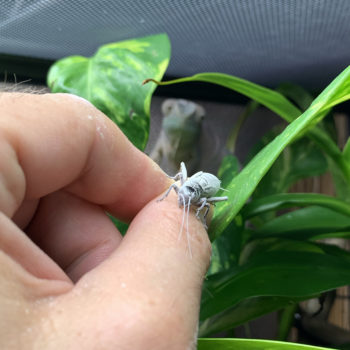
Chameleon is full
We tend to overfeed our chameleons in captivity. We feed and they eat into obesity. And this gets normalized as social media gets used to the look of obese chameleons. Veiled Chameleons are especially prone to overeating and seem to be able to continuously eat. But many other species of chameleons will stop eating once they are full. If you chameleon is a picky eater then it may very well be eating only things that amuse it such as treats because it is eating for pleasure rather than hunger. It is like when we are full and refuse to eat anything substantial, but there is always room for ice cream. An adult non-gravid chameleon should eat no more 3-5 food items every other day with the weekend skipped.
If your chameleon refuses to eat or will just eat a favorite food item then skip a couple of feedings and then offer a couple feeders. If this is truly just an issue of the chameleon being full the situation should right itself with reducing the offering of food.
Although a full chameleon is not necessarily an obese chameleon, it is worthwhile to reference the images below to be familiar with the condition that may produce picky eaters.
Chameleon is sick
Like us, sickness can sap appetite. Whether it is an infection or a high parasite load, if your chameleon does not feel well they may not eat. Look for other signs that indicate internal distress such as lethargy and eyes closed during the day. Your veterinarian can help determine the cause and solution.
Chameleon is about to give birth
It is common for owners of Jackson’s Chameleons to enjoy feeding their female who is such a good eater until the day that she refuses to eat. And after a couple days the keeper is worried. This is the textbook process of getting ready to drop babies.
The females will eat to build up their nutritional stores and then go off feed to get ready to give birth. It is usually two to four days after they stop eating that babies are born.
Past trauma with certain feeder insect
Chameleons do remember if they are bitten! If a certain feeder insect bit them or had spines which hurt them when eaten the chameleon may refuse to ever eat that insect again. It is up to you how much work you want to put into getting them over this past trauma. You can get them to reconsider with hunger by skipping a couple of feedings and offering smaller versions of the offending insect.
Often an insect can get a hold of the chameleon when the insect is on the large size. Chameleons can take down insects the size of their head, but it can be a struggle and the insect can get in a bite before being dispatched. Smaller food items are taken care of with the first bite and there is no drama.

